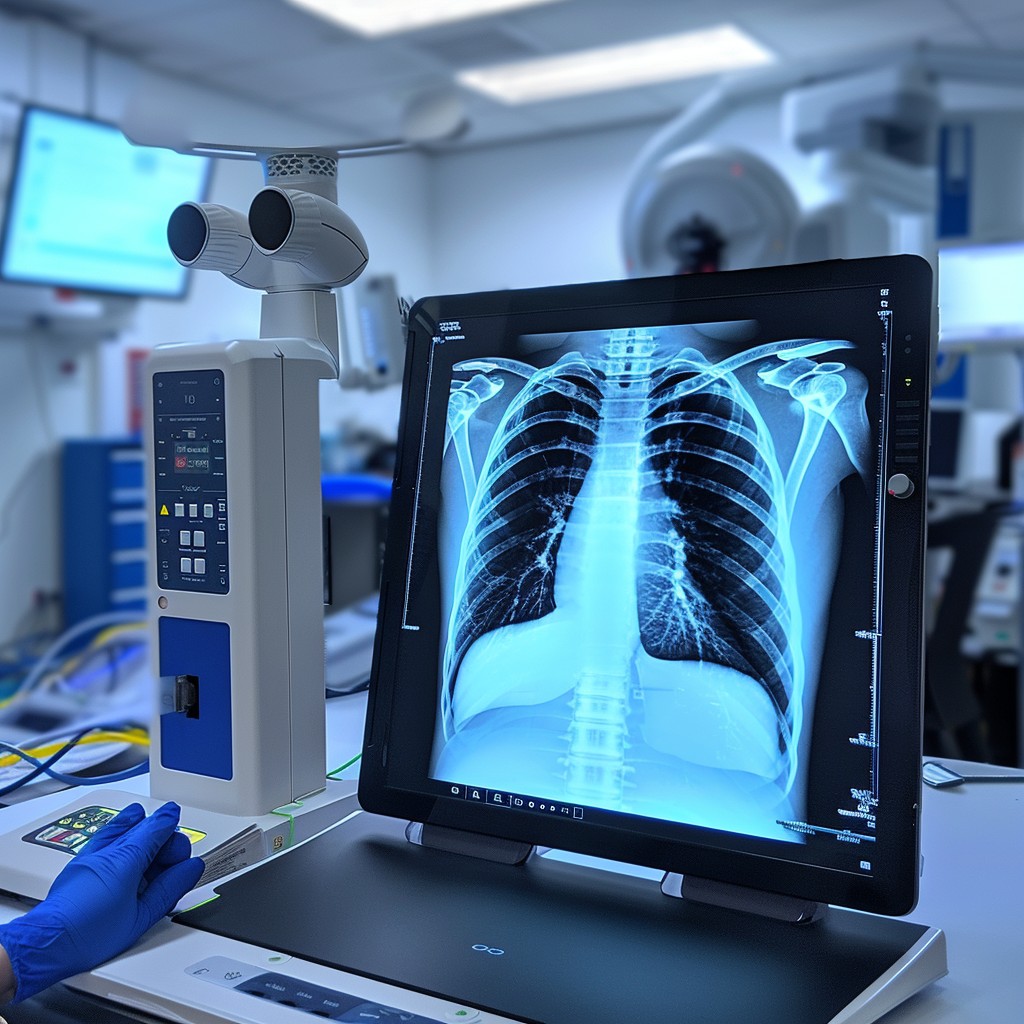In a groundbreaking move, the University Hospitals of Leicester NHS Trust has introduced a cutting-edge AI-powered chest x-ray solution. This initiative aims to revolutionize the way lung abnormalities are detected and diagnosed, potentially speeding up the process and improving patient outcomes.
The trust is now utilizing Qure.ai’s qXR AI, integrated into the Radiology Information System from Magentus. This powerful technology is designed to review chest x-rays referred by GPs, swiftly identifying potential abnormalities in the lungs.
Improving efficiency
With the help of AI, clinicians can receive immediate reports on x-ray results, enabling them to make quick decisions regarding further referrals for CT scans or treatment planning. This efficiency is crucial in ensuring timely diagnosis and appropriate medical interventions.
The implementation of this AI solution is part of the LungIMPACT research study, a collaborative effort between Qure.ai, UK academia, and NHS hospitals. The study aims to gather real-world evidence on the effectiveness of AI-assisted diagnoses of lung cancer.
University Hospitals of Leicester joins other esteemed NHS trusts, including University College London Hospitals, Nottingham University Hospitals, and East Suffolk and North Essex NHS Foundation Trust, in this pioneering trial.
Expert insights from Leicester
Dr. Indrajeet Das, a consultant cardiothoracic radiologist at University Hospitals of Leicester NHS Trust, underscores the significance of rapid segregation of x-ray results. He emphasizes how Qure’s AI technology streamlines the process, prioritizing cases that require immediate attention.
The seamless integration of Qure’s AI into the Radiology Information System ensures smooth workflow transitions between chest x-ray and CT reporting. This feature reduces potential delays and enhances productivity in diagnostic imaging.
Optimizing resource utilization
Christopher Ladds, acting CEO of Magentus, highlights how this project provides clinicians with granular control over their workflows, optimizing resource utilization. The efficient switching between different imaging modalities maximizes throughput and enhances digital agility in radiology.
The introduction of AI-powered chest x-ray solutions at University Hospitals of Leicester marks a significant advancement in medical technology. By leveraging artificial intelligence, clinicians can expedite the detection and diagnosis of lung abnormalities, ultimately leading to improved patient care and outcomes.
By staying at the forefront of innovation and collaboration, the NHS continues to pave the way for transformative healthcare practices that benefit patients and healthcare professionals alike.





